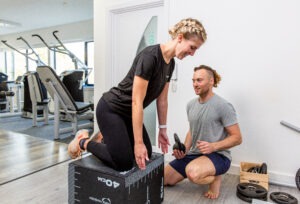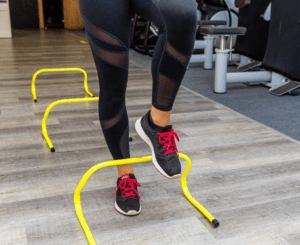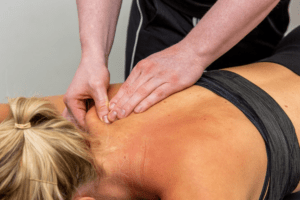The reason = Delayed onset muscle soreness
After having done some unaccustomed strenuous exercise you may suffer from muscle tenderness, pain and stiffness while moving the exercised muscle and this is called ‘delayed-onset muscle soreness’ (DOMS). It occurs several days post exercise and usually peaks between 48 and 72 h, subsides and eventually disappears by up to 10 days post-exercise.
DOMS may be caused by several mechanisms including micro-trauma of muscles and connective tissues which is followed by an inflammatory process and swelling. These events, along with genetic factors, exercise history, age and psychosocial factors will likely account for the varying degrees of symptoms.
While research has yet to offer a definitive explanation as to the cause, most are in agreement that lactic acid, once believed to be linked to muscle pain after exercise, is not involved. In fact, lactic acid has been shown to dissipate within an hour of cessation of exercise, long before the symptoms of DOMS arise.
Management:
Post-exercise massage has been shown to reduce the severity of muscle soreness after exercise.
Compression garments (either during and or post exercise) may be effective in enhancing recovery.
Other treatments:
- Cryotherapy – the use of ice/cold can help if you use it for 10-15 minutes at a time. If you’re using an ice pack (a bag of peas will do!) then use a protective layer on the skin e.g. a tea towel and then put the ice pack on top.
- Stretching – you can follow home exercise stretches or take part in a group class such as yoga.
- Foam rolling post exercise – foam rolling can be done daily at home for up to 5 minutes and will compliment any sports massage.
- Low-intensity exercise – low resistance bike work, walking, or swimming.
- Use of sports tape – you can be taught how to do this by a physio/sports professional
Advice:
It’s best not to carry out intense exercise whilst you are experiencing the symptoms of DOMS.
You should undertake ‘sports-specific exercise’ up to 2 months prior to an event – an example a component of rugby training would be, to practice running/accelerating in different directions so that you train as the game is played.
If you are undertaking a sporting event e.g. iron-man or marathon, you should consider a consulting a nutritionist for advice on nutrition and hydration.
If you would like to arrange a physiotherapy appointment or have a question then don’t hesitate to contact us.



